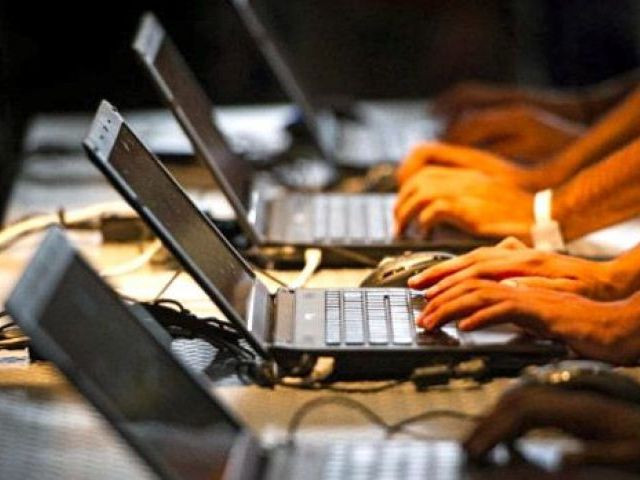Punjab slaps sales tax on internet services
Aims to collect Rs348b in revenues, will issue Rs25b bonds for infrastructure projects

PHOTO: AFP
Now, internet services have come under the tax net, which takes the total to 62 services on which the provincial government will collect general sales tax. However, internet services under student packages, whose cost does not exceed Rs1,500, have been exempted.
Budget 2017-18: Tax collection needs to be consolidated
According to the provincial budget for FY18 announced on Friday, the Punjab government is expected to collect Rs230 billion in tax receipts and Rs117.32 billion in non-tax revenues.
It has revised downwards the tax collection target to Rs175 billion, which was earlier set at Rs184.43 billion, for the ongoing fiscal year 2016-17.
In a major move, the provincial government will float investment bonds worth Rs25 billion in the next fiscal year and spend the income from its sale on various infrastructure projects.
The province is expected to receive Rs1,502 billion under general revenue receipts in FY18. From the divisible pool of taxes, it will get Rs1,154 billion.
The provincial government has abolished the Capital Value Tax (CVT) and property registration fee and merged both into the stamp duty in order to streamline the process for taxpayers, according to the Finance Bill tabled in the Punjab Assembly by Finance Minister Dr Ayesha Ghous-Pasha.
At present, 2% registration fee is being charged on the value of urban property, Rs500 in case of property value up to Rs0.5 million and Rs1,000 on the value exceeding Rs0.5 million, which will be merged into the stamp duty. The new rate of stamp duty will be 5%.
However, the exemptions already envisaged in Section 6 of the Finance Act 2010 from the payment of CVT will remain intact. The definition of urban area has also been proposed to be included in the Stamp Act 1899. This step has been taken to promote ease of doing business in the province.
Recently, the Board of Revenue Punjab had introduced an e-stamping project for facilitating the public and eliminating the use of counterfeit stamp papers.
Owing to its success, it has been proposed to merge all taxes, duties and fees under the head of stamp duty and its papers will be issued through the e-stamping system.
The merger of taxes will ease the process for depositing the taxes and will be helpful in the reconciliation process as well. The government has also reduced the tax on construction sector to 5% from 16% in order to further boost construction activities in the province.
Furthermore, it exempted construction services for cantonments projects and the Public Sector Development Programme (PSDP).
Tax exemption has also been granted to construction services for the Annual Development Plan (ADP) 2016-17 projects. But construction services providers cannot avail it for the ADP 2017-18 projects. The Finance Bill stated that the operational experience gained by the Punjab Revenue Authority (PRA) during the outgoing financial year had led to calls for some technical amendments in the Punjab Sales Tax on Services Act 2012.
Education budget to rise to Rs800 billion
The technical amendments cover issues like harmonisation with the federal Sales Tax Act 1990 by introducing counter-part provisions for sales tax real-time invoice verification, clarifying the scope of service exports, definition of place of business for capturing transactions with respect to e-commerce, increasing the number of authorities under the Act and introducing the concept of collection agents not being a service provider or a service recipient.
The amendments will further streamline the application of the Act and increase the efficiency of PRA along with facilitation for the taxpayers.
Published in The Express Tribune, June 3rd, 2017.
Like Business on Facebook, follow @TribuneBiz on Twitter to stay informed and join in the conversation.



















COMMENTS
Comments are moderated and generally will be posted if they are on-topic and not abusive.
For more information, please see our Comments FAQ